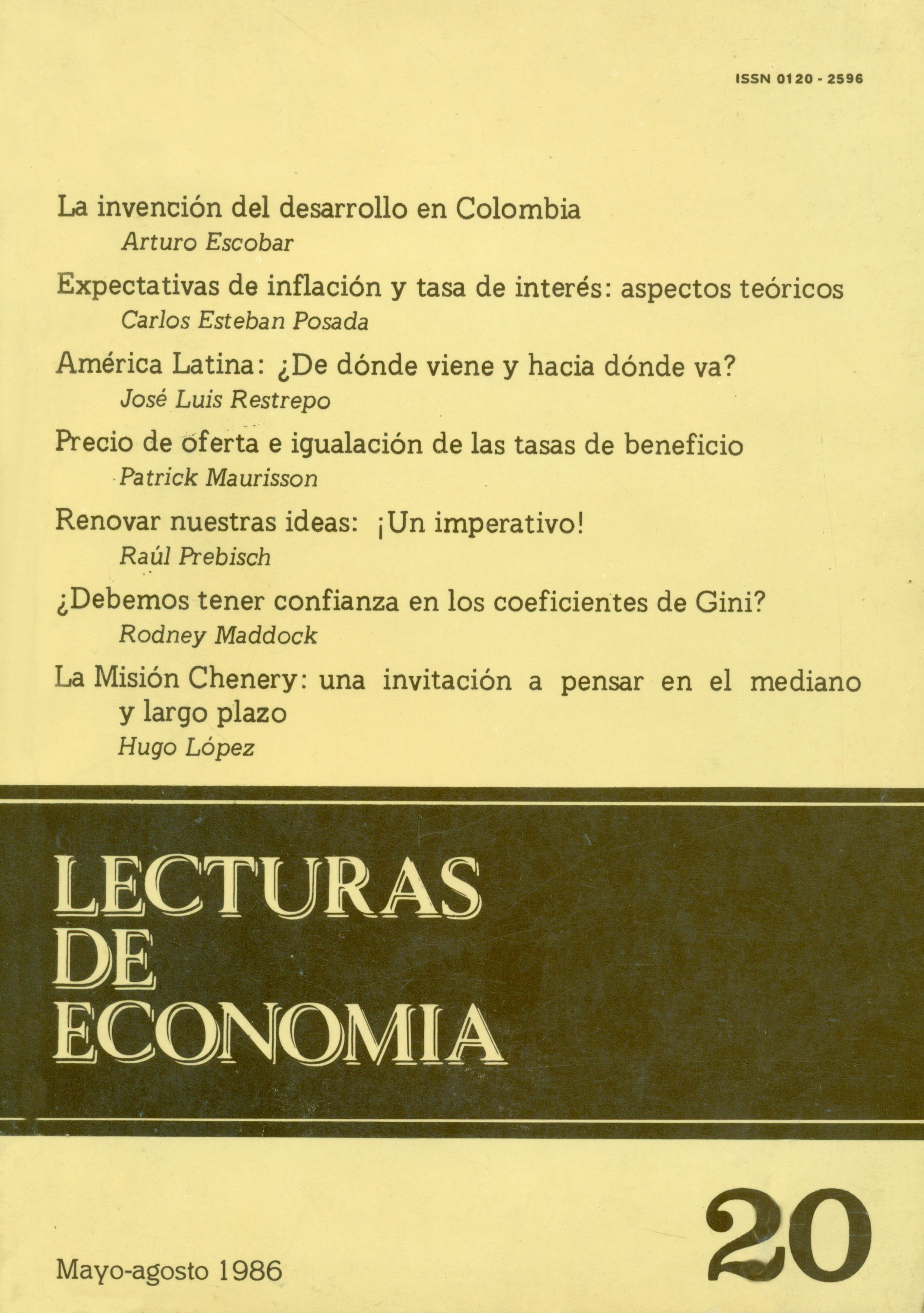La Misión Chenery: una invitación a pensar en el mediano y largo plazo
DOI:
https://doi.org/10.17533/udea.le.n20a8007Abstract
• Resumen: La Misión de Empleo (dirigida por el economista norteamericano Hollis Chenery), conformada en el segundo semestre de 1984 para elaborar un diagnóstico y una estrategia sobre el desempleo en Colombia ha rendido ya su informe. El problema laboral colombiano es doble: desempleo abierto en el sector moderno (1.100.000 desempleados) y bajos ingresos en el sector informal (1.800.000 trabajadores ganan menos de un salario mínimo legal). Ambos están conectados, porque los salarios pagados en la economía moderna constituyen la fuente de demanda para la economía informal y porque en parte el desempleo en el primero se transmite al segundo aumentando así sus efectos laborales. En este artículo se discute la naturaleza de las distintas formas del desempleo en Colombia y su influencia en la tasa general del mismo (un 15% en la actualidad) y se evalúa la política macroeconómica propuesta por la Misión de Empleo para enfrentar la desocupación y los bajos ingresos de amplios sectores de la población trabajadora colombiana.
• Abstract: A Mission led by Hollis Chenery was formed in late 1984 to analyze Colombian unemployment and to design a strategy for dealing with it. There are two main problems: open unemployment in the modern sector is around 1.1000.000 and salaries in the informal sector (1.800.000 workers) are below the legal minimum. The two are connected. Informal sector output is sensitive to the demands of modern sector workers, and the unemployed in latter sector can flow across into the former. This paper discusses the nature of these distinct forms of unemployment and their influence on the aggregate measure. It also analyses the macroeconomic proposals of the Mission.
Downloads
Downloads
Published
How to Cite
Issue
Section
License
This page, by Universidad de Antioquia, is licensed under a Creative Commons Attribution License.
Authors who publish with this journal agree to retain copyright and grant the journal right of first publication, with the article licensed under a Creative Commons Attribution-NonCommercial-ShareAlike License allowing others to share it as long as they acknowledge its authorship and original publication in this journal.
Authors can enter into separate, additional contractual arrangements for the non-exclusive distribution of the journal's published version of the work (e.g., post it to an institutional repository or publish it in a book), provided that these arrangements be not for profit and the journal be acknowledged as the original source of publication.
Authors are permitted and encouraged to post their papers online (e.g., in institutional repositories or on their websites), as it can lead to valuable exchanges as well as greater citation of the published work.







